Alain Tchana
Zen: LSTM-based generation of individual spatiotemporal cellular traffic with interactions
Jan 05, 2023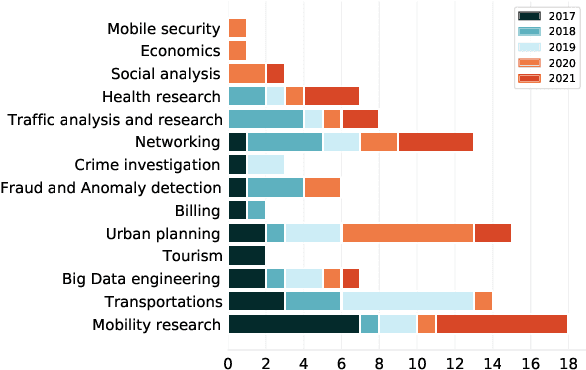
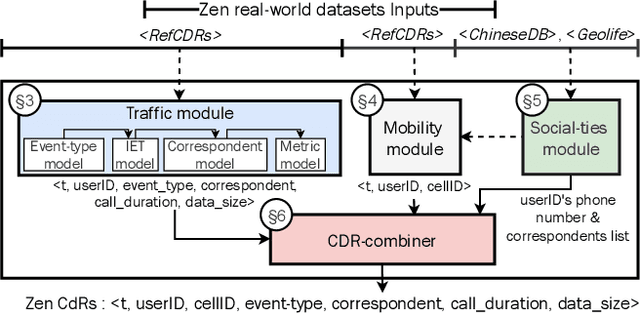
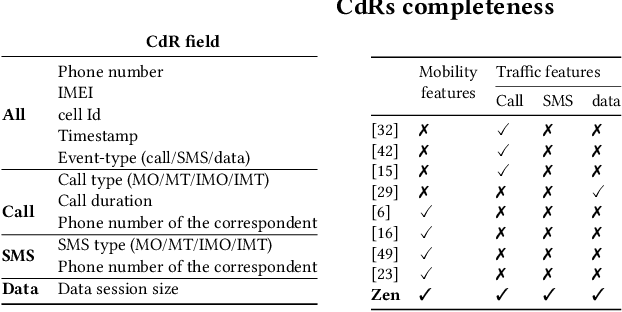
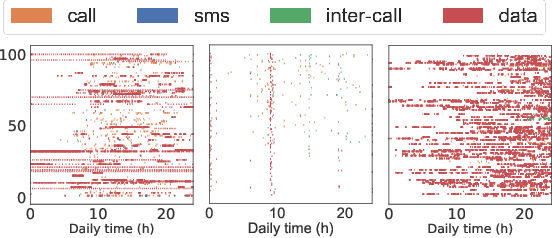
Abstract:Domain-wide recognized by their high value in human presence and activity studies, cellular network datasets (i.e., Charging Data Records, named CdRs), however, present accessibility, usability, and privacy issues, restricting their exploitation and research reproducibility.This paper tackles such challenges by modeling Cdrs that fulfill real-world data attributes. Our designed framework, named Zen follows a four-fold methodology related to (i) the LTSM-based modeling of users' traffic behavior, (ii) the realistic and flexible emulation of spatiotemporal mobility behavior, (iii) the structure of lifelike cellular network infrastructure and social interactions, and (iv) the combination of the three previous modules into realistic Cdrs traces with an individual basis, realistically. Results show that Zen's first and third models accurately capture individual and global distributions of a fully anonymized real-world Cdrs dataset, while the second model is consistent with the literature's revealed features in human mobility. Finally, we validate Zen Cdrs ability of reproducing daily cellular behaviors of the urban population and its usefulness in practical networking applications such as dynamic population tracing, Radio Access Network's power savings, and anomaly detection as compared to real-world CdRs.
Plinius: Secure and Persistent Machine Learning Model Training
Apr 08, 2021

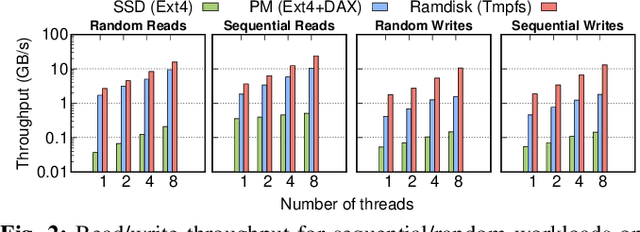
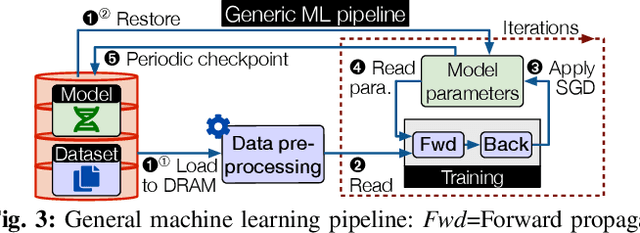
Abstract:With the increasing popularity of cloud based machine learning (ML) techniques there comes a need for privacy and integrity guarantees for ML data. In addition, the significant scalability challenges faced by DRAM coupled with the high access-times of secondary storage represent a huge performance bottleneck for ML systems. While solutions exist to tackle the security aspect, performance remains an issue. Persistent memory (PM) is resilient to power loss (unlike DRAM), provides fast and fine-granular access to memory (unlike disk storage) and has latency and bandwidth close to DRAM (in the order of ns and GB/s, respectively). We present PLINIUS, a ML framework using Intel SGX enclaves for secure training of ML models and PM for fault tolerance guarantees. P LINIUS uses a novel mirroring mechanism to create and maintain (i) encrypted mirror copies of ML models on PM, and (ii) encrypted training data in byte-addressable PM, for near-instantaneous data recovery after a system failure. Compared to disk-based checkpointing systems,PLINIUS is 3.2x and 3.7x faster respectively for saving and restoring models on real PM hardware, achieving robust and secure ML model training in SGX enclaves.
 Add to Chrome
Add to Chrome Add to Firefox
Add to Firefox Add to Edge
Add to Edge